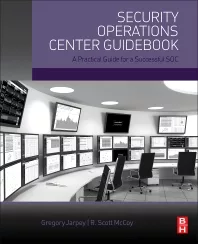ResiCAV Project Highlights Urgent Need for UK Transport Cybersecurity Center

A consortium of industry, government and academia has explored the viability of creating a UK cybersecurity ‘Centre of Excellence’ to better deal with cyber threats in the transportation sector.
According to an Intelligent Transport report, ResiCAV – delivered by a consortium comprising HORIBA MIRA, Thales, BT, WMG at the University of Warwick, the Centre for Modelling & Simulation (CFMS), Oxfordshire County Council, AESIN Techworks, University of South Wales, University of Bristol, Coventry University and the National Digital Exploitation Centre (NDEC) – has explored the feasibility of creating a UK Cybersecurity ‘Centre of Excellence’ to detect, understand and respond to emerging cybersecurity threats in real time across the mobility ecosystem. The three-month program was supported by funding from The Centre for Connected and Autonomous Vehicles (CCAV) and was run by Zenzic and Innovate UK, says the report.
Intelligent Transport reports that ResiCAV is said to be the first project globally to combine industrial, academic and government expertise in this way. The project, says the report, set out to determine how a ‘UK Centre of Excellence for Road Transport Cybersecurity Resilience’ (CYB-R) would work - it defined the physical and virtual capabilities required and conducted research into the feasibility of new methods that help CAVs and their infrastructure detect, understand and respond to cyberattacks.
Anthony Martin, Head of Vehicle Resilience Technologies at HORIBA MIRA, said, “As the UK moves from CAV demonstrations to mass deployment, the need to protect these vehicles and associated infrastructure from potentially catastrophic cyber-security failures cannot be overstated."
"Given the sheer size and complexity of the issue, we’re incredibly proud of the world-leading research the consortium has delivered over a very short time span. This research has successfully demonstrated how a Cybersecurity ‘Centre of Excellence’ can support future transport systems to develop real-time responsiveness to cyber-security threats," Martin noted.
Ultimately, ResiCAV’s findings have highlighted the absolute and urgent need for a collaborative, industry-led, government-backed cybersecurity program, Martin added. The next steps, he says, will be to secure funding for the development of the ‘UK Centre of Excellence for Road Transport Cybersecurity Resilience’. Developing a world-class cybersecurity capability of this nature will be critical in building trust in CAV technologies as they are deployed, supporting the integration of CAV technologies across the UK’s future transport network, said Martin. "ResiCAV has shown how the UK is well positioned to become a world-leader in automotive cyber-security and vehicle resilience.”
Looking for a reprint of this article?
From high-res PDFs to custom plaques, order your copy today!






